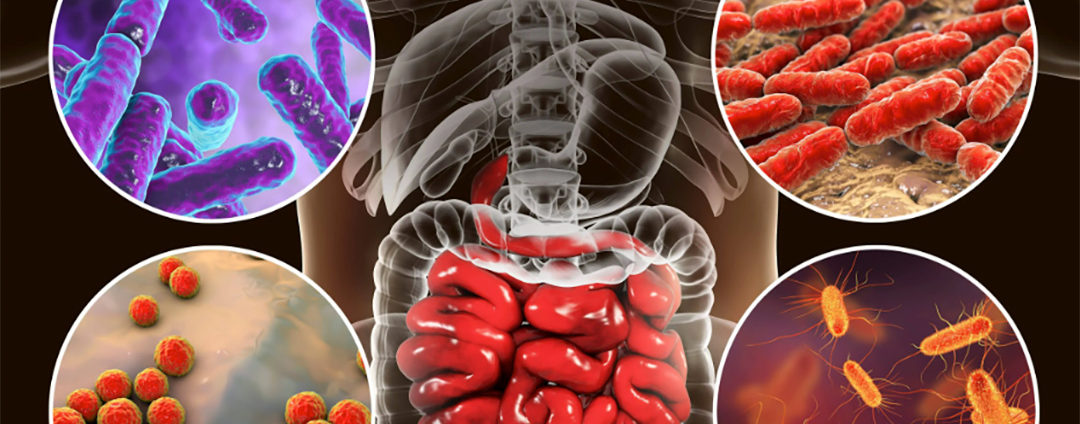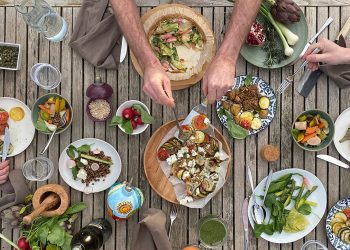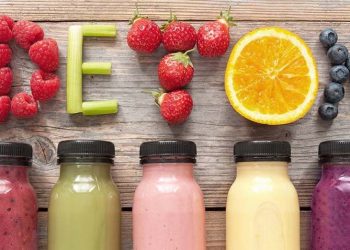Diversify your microbiota
You are not the only one eating when you put the food in your mouth. So does your microbiota – 10,000 billion microscopic living organisms (bacteria, fungi, viruses and others). In a healthy person, these “bugs” coexist peacefully in the small and large intestines and throughout the body. The microbiome is a supporting organ that plays a vital role in promoting the smooth daily operations of the human body. It is difficult to imagine what functions your microbiome is not involved in.
What is microbiome
The microbiome consistsof microbes that are both helpful and potentially harmful. Varied = Healthy microbiome composed of beneficial bacteria connected with cognitive function, reduced cancer, obesity and diabetes risks, heart health, better sleep and mood.
A human being kicks off the bacteria population in the gut during the vaginal birth and through the mother’s breast milk. Scientists link the prevalence of diabetes, obesity and immunity issues with needless C-sections and lower breastfeeding rates of the modern era. So, if you are lucky, you are given a good start. Everything is in your hands after infancy, or precisely, inside your plate, to develop and nurture the diversity of your microbiota. Because later on, environmental exposures and diet can change one’s microbiome to be either beneficial to health or place one at greater risk for disease.
Modern lifestyles threaten the diversity of the intestinal microbiota. Diet and lifestyle are critical factors in the variety of these intestinal bacteria. We will see how a varied diet helps maintain the microbiota’s diversity. Diversity is the key! So, the more diverse the diet, the more varied the microbiota.
Microbial diversity and intestinal dysbiosis
The intestine is the most significant interface between the host and its external environment. It plays a vital role in nutrient metabolism and water absorption. In addition, the immune cells associated with the intestine are more numerous than those of other secondary tissues in the body. They interact with billions of bacteria: the intestinal microbiota.
Links have been established between diseases in industrialised countries and changes in the intestinal microbial ecosystem, known as intestinal dysbiosis. This refers to an unbalanced microbiota.
The loss of diversity in the microbiota appears to be the most consistent finding in intestinal dysbiosis. Dysbiosis may be linked to the loss of bacterial varieties associated with a modern Western lifestyle. This hypothesis suggests that the reintroduction of varied bacteria into the digestive ecosystem could be an option for improving and restoring the diversity of the intestinal microbiota and for treating people at risk.
Human diseases, Western lifestyles and microbiota diversity: a tripartite association. A healthy intestinal microbiota is an ecosystem in which bacteria live together in symbiosis. Therefore, a diverse intestinal microbiota is a relevant indicator of good intestinal health and well-being.
Diversifying the microbiota through diet
What we eat determines the type of microbes that reside in our intestines, and it is estimated that at least 20% of the variation in the diversity
of intestinal flora is directly linked to diet. A varied diet is rich in fruit and vegetables, which vary according to season and climate. They provide vitamins and nutrients, antioxidants and, above all, fibre. Fibre plays a significant role in producing short-chain fatty acids by feeding the bacteria in our microbiota. More commonly known as prebiotics, they are found in virtually all plants.
Data from the American Gut Project showed that weekly consumption of more than 30 different plant-based foods was correlated with a high level of diversity in the intestinal microbiota. And let’s not forget the greatest allies of the intestinal microbiota, fermented products and probiotics, the beneficial bacteria that work over the long term to improve intestinal health.
Eating more than 30plants weekly is challenging because processed low-fibre (pastry, juices, salty snacks) found in abundance in supermarkets can not be counted as a part of 30. Cooking fresh and varied food daily is a “mission impossible”, let alone persuading your partners and/or kids to follow you in your diverse microbiome journey, especially when one is working full time.
How to diversify your diet and invest in your longer and healthier life
- Subscribe to a regular fruit and vegetable delivery at your office and home. Choose fruits and vegetables you can eat as a snack.
- Define an afternoon or morning during the week when you cook in batches and freeze 3 to 5 recipes.
- Subscribe to a fresh meals delivery service, such as Allcook Kitchen. Allcook Kitchen cooks fresh and delicious meals and delivers meal boxes throughout Switzerland. With every 3 Allcook meals, you can achieve 30 different plants a week.
https://journals.asm.org/doi/10.1128/msystems.00031-18





